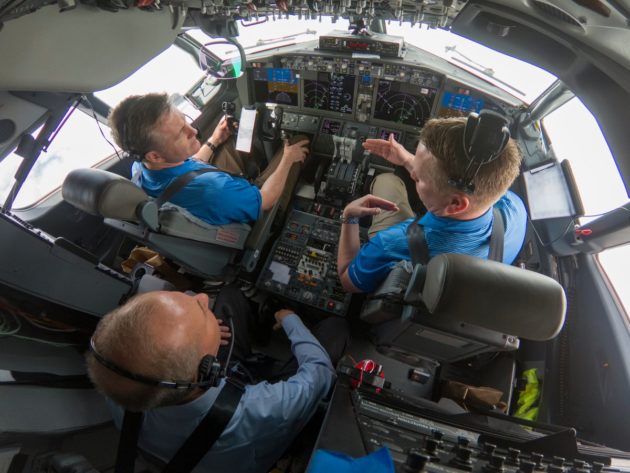
Months after two accidents forced the worldwide grounding of 737 MAX passenger jets, Boeing is now recommending that pilots go through new rounds of MAX simulator training before the planes return to service.
- Interim CEO Greg Smith said the policy switch was motivated by concerns about safety and Boeing’s reputation. “Public, customer and stakeholder confidence in the 737 MAX is critically important to us, and with that focus, Boeing has decided to recommend MAX simulator training combined with computer-based training for all pilots prior to returning the MAX safely to service,” he said today in a statement. The final determination will be up to the Federal Aviation Administration and other industry regulators.
- When Boeing updated its design for the 737 with a new line of fuel-efficient engines in the 2011-2013 time frame, engineers tweaked the control system — with the intention of making the plane’s handling so similar to previous-generation 737s that airlines could avoid the cost and expense of putting pilots through MAX-specific simulator training. Unfortunately, one of those automatic control software tweaks is thought to have contributed to fatal crashes in October 2018 and March 2019. That led to the grounding of hundreds of MAX planes and a review of pilot training requirements.
- One potential problem is that only 34 MAX-specific simulators exist worldwide, and thousands of pilots will need to line up to use them. The cost of the training and the logistical complications, plus contractual rebates that Boeing may have to pay, is likely to add up to hundreds of millions of dollars and add to the delay in returning the 737 MAX planes to service. Boeing is also assessing a potential wiring issue that could require further fixes to the 737 MAX.
